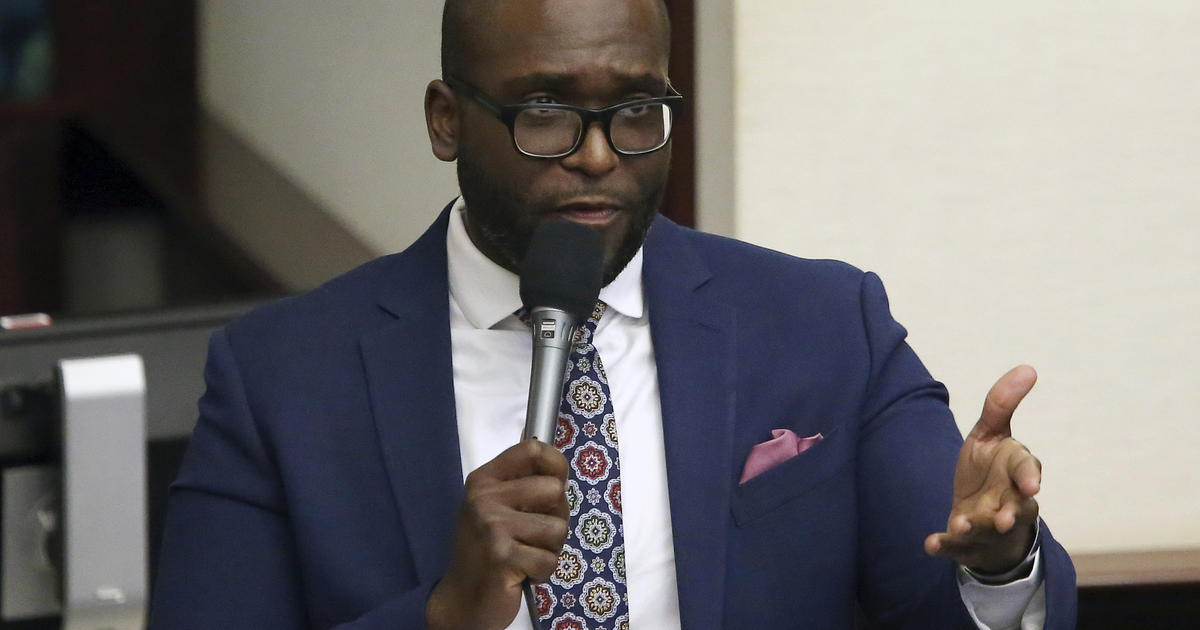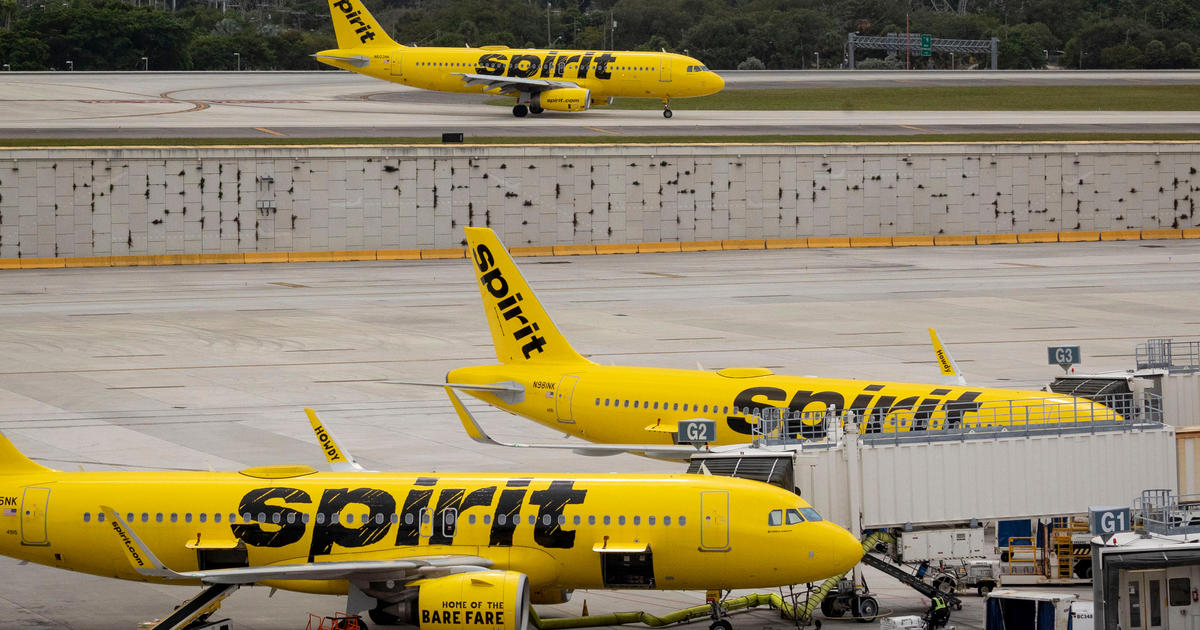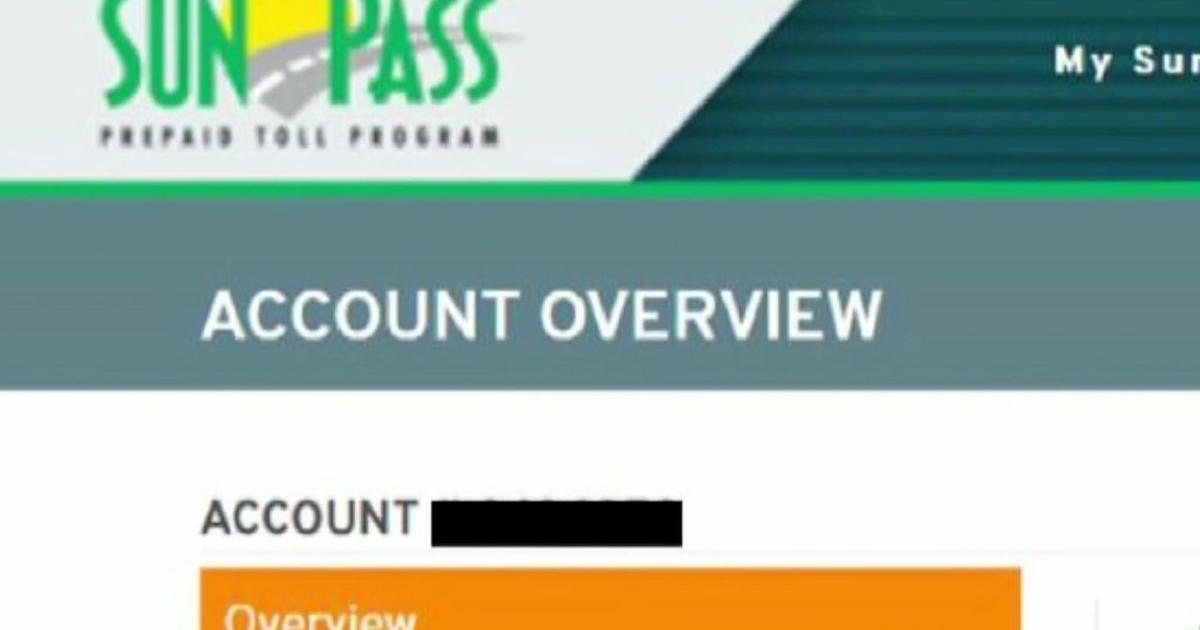Controversy Swirls Around Program To Keep Drunks Off Road
TALLAHASSEE (CBSMiami/NSF) - The Florida program aimed at keeping impaired drivers off the road is ensnarled in legal challenges, a bidding war and criticism from vendors who say the state isn't doing what it should to keep drunks from getting behind the wheel.
Florida Highway Safety and Motor Vehicles Executive Director Julie Jones insists the state's DUI program, which includes a voluntary, intensive abstinence-based program, is a model for the nation.
But one vendor who wants to expand the use of devices that keep vehicles from starting when a driver has been drinking contends that the state's efforts are a dismal failure.
More than 10,000 of the devices are now in use by Florida drivers, most of whom have been convicted of driving under the influence at least twice. State law requires ignition interlock devices, or IIDs, for first-time offenders whose blood-alcohol level is .15 --- about twice the legal limit --- or who had a child in the car when arrested. Second- and third-time offenders are also required to have the devices installed, and judges can also order the devices to be used.
Vendors have reaped more than $100 million from the equipment since Florida first mandated the devices a decade ago, and it's no surprise that a lucrative contract awarded by Jones' department to a new vendor last year was challenged.
But in January, an administrative law judge decided that the Department of Highway Safety and Motor Vehicles never had the authority to contract with the ignition interlock device vendors. The agency used "unbridled discretion" in awarding the contracts this time around, as it did 10 years ago, without the legislative authority to do so, Administrative Law Judge Robert E. Meale wrote in a 98-page order issued Jan. 10. DHSMV is appealing the ruling.
The judge's decision also put a new contract with Texas-based Smart Start on hold. The state's current contracts with ACS and Seattle-based Lifesafer expire on March 31, so Jones last week issued emergency offers to Smart Start along with two losing bidders --- ACS and Guardian Interlock, a company affiliated with Lifesafer. Jones said she did not extend the offer to Lifesafer, the fourth bidder, because that company's proposal was considered "non-responsive" since it lacked some of the requirements included in the invitation to negotiate. Under the emergency offers, drivers have to pay $95 a month for the devices.
Aside from wrangling over bids and contract authority, Lifesafer and Guardian want the state to expand the use of the devices to include first-time offenders who now have the chance to get "hardship licenses" that allow them to drive between work and home. Last year, the state issued about 6,600 DUI hardship licenses, according to the department.
But Jerry Stanton, a partner in the parent company that owns both Lifesafer and Guardian, said there's no guarantee that those people --- and others who've had their licenses suspended for DUI --- aren't driving drunk. Stanton, who co-founded Lifesafer Ignition Interlock more than three decades ago, points out that more than 17,000 Floridians arrested last year for driving without a license were under sanction due to DUI-related events. Other national research shows that as many as 75 percent of people who lost their licenses because of driving under the influence continue to drive.
Given that people are likely to drive whether they have licenses --- and insurance --- or not, Stanton says Floridians would be safer if those drivers were required to have ignition interlock devices, something federal officials and Mothers Against Drunk Driving support.
"It's proven in studies that taking someone's license away for excessively long periods of time doesn't stop them from driving. It stops them only from driving legally," Stanton said.
But Jones believes that the state's treatment-based program is far more robust and has better results than the equipment alone can provide.
"I question some of the vendors' sincerity relative to public safety versus money. I think you have to. They will tell you that they are keeping the public safe. But they're certainly not trying to help work within the constraints of the department," Jones said.
Ignition interlock devices only test for alcohol and don't address the growing number of drivers on drugs, Jones said. And about 75 percent of those convicted of DUI one time don't re-offend, she said.
"I guess I shouldn't care whether someone who gets a DUI has to go on an IID or not. But if we're going to move forward, again public safety and protecting the public, is this the best way to do it?" Jones said. "Our treatment standards … really focuses on abstinence and not on when and how can I drink and when can I drive."
Florida's DUI program includes referral to one of the state's 26 DUI programs run by non-profit organizations. The programs offer education, counseling and drug tests along with voluntary, abstinence-based programs called "Special Supervision Services" that can last a year or longer for those whose licenses have been revoked for at least five years. Completion of the Special Supervision Services programs is required for individuals to get hardship licenses if they have had more than two DUIs.
Evidence that the devices aren't foolproof rests in the data, Jones said. Since the inception of the program 10 years ago, more than 900 Floridians were arrested for driving under the influence while they had ignition interlock devices on their vehicles, according to the department.
But Stanton used the same data to show that the ignition interlock devices are working --- less than 1 percent of drivers using the equipment were caught driving drunk --- and other numbers to demonstrate that what the state is doing isn't working. Under Florida law, people with two DUIs have a mandatory five-year license suspension, and people with three DUIs face 10-year suspensions.
Like MADD, Stanton believes the five- and 10-year license revocation periods are too long because most offenders drive anyway. One study found that, since the interlock devices have been in use in Florida, only half of all offenders who completed the mandatory suspension period ultimately got their licenses reinstated."
"(The ignition interlock device) doesn't cure alcoholism. But again, is it abstinence or is it safety? If that person has to take a test before he or she drives, then what have we done? Kept a drunk driver off the road. Doing nothing, we've sent an unlicensed, uninsured, alcohol-consuming driver on the road," Stanton said. "Is it about curing alcoholism or protecting Florida's families on the highway? Coupled with the DUI programs, I think we can be successful in doing both."
Vendors last year pushed a measure that would have required ignition interlock devices for everyone arrested for a DUI in Florida. In 2013, Florida issued more than 50,000 DUI citations, including an estimated 33,000 first-time offenders. Requiring ignition interlock devices for each of those arrests would triple the number of the devices on the road.
Ignition interlock device advocates haven't given up this year. Since 2006, MADD has advocated that states require the devices for all DUI offenders.
MADD sent a letter to House Speaker Will Weatherford, R-Wesley Chapel, last month saying that Florida has "fallen behind the times" and urging the Legislature to join the 20 other states that have adopted the platform.
"MADD believes that a new approach is needed with how the state handles persons arrested for DUI. The current approach of long license suspension periods before an offender is even eligible for an interlock is failing to protect the public and failing to adequately rehabilitate convicted drunk drivers," Jan Withers, MADD national president, wrote on Feb. 27.
As her appeal works its way through the courts, Jones is trying to get the Legislature to "clarify" that she has the authority to contract. At the same time, she said she is also working to get the vendors to reach a settlement over the bid.
She said she has "bent over backwards" to accommodate them and even offered a settlement agreement that would have allowed all four vendors to operate in the state. But lawyers for Guardian, which filed the rule challenge and the bid protest, rejected the settlement, in part because it included a provision that would have prohibited the ignition interlock device vendors from lobbying the Legislature "on any IID issue" --- except allowing the department to contract for ignition interlock device services --- including "any expansion of the IID current statutory requirements."
Laura McLeod, executive director of the Florida Association of DUI Programs, said that drivers can easily trick the ignition interlock devices by having someone else blow into them or, as in one highly publicized case in New Mexico, by breathing into the device before consuming alcohol. She said DUI schools have a recidivism rate of 6.6 percent, compared to ignition interlock devices, which have a compliance rate of about 60 percent, according to a National Highway Traffic Safety Administration study.
"To lead the public to believe that an IID is keeping people from drinking and getting behind the wheel is a fairy tale. For some people, it works. … But to lead people to believe that it really, absolutely keeps people from driving their car while they're drinking … the data just doesn't support that," McLeod said.
"The News Service of Florida's Dara Kam contributed to this report."



